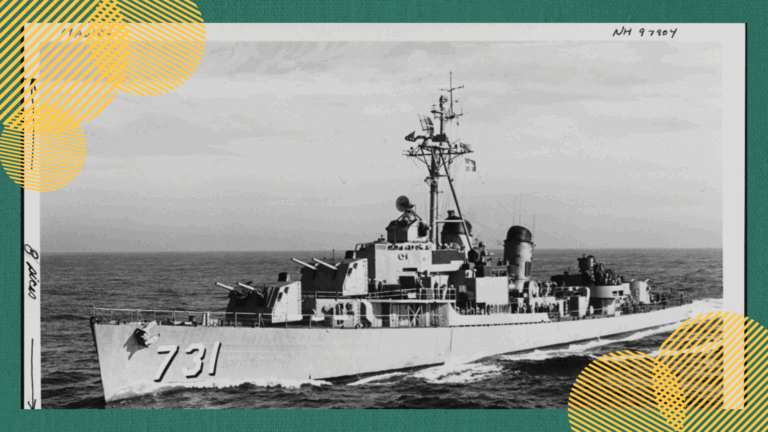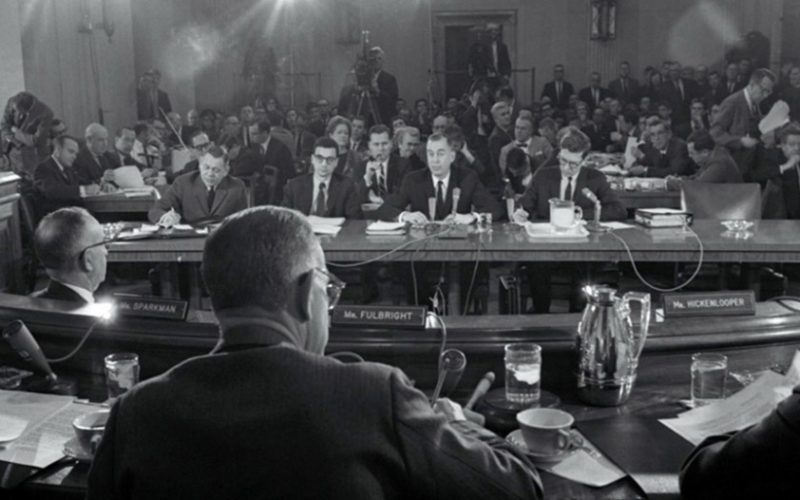Fulbright Investigates the Vietnam War

Lesson Plan
In this four-day inquiry lesson, students will explore the importance of trust in the relationship between Congress and the Presidency. Through primary source excerpts from the landmark Fulbright hearings, as well as news reports and previously classified materials, students will be asked to answer, “How important is it that Congress and the President trust each other?”
This free download includes:
- Lesson plan
- Primary sources
- Student worksheets
- Answer key

Over the course of the last 5 years, this committee has held many hearings on the executive branch’s war policies. When the first public series began in early 1966, the principal question that concerned the committee and the public was “Why are we in Vietnam?” It was never answered to the satisfaction of many members of this committee. But now 5 years later, 52,000 American lives, and $120 million later, the question being asked by the American people is … “When and how do we get out?”
Senator William J. Fulbright
From 1966 to 1971, the Senate Foreign Relations Committee held a series of oversight hearings that questioned the justification, tactics, and effectiveness of the U.S. military in the Vietnam War. Popularly called the “Fulbright hearings” after its chair, Arkansas Democrat Senator J. William Fulbright, these televised congressional hearings educated Congress and the American public about unknown facts, forced greater scrutiny of U.S. military actions, exposed misrepresentations by the executive branch, and helped shift public opinion against the war. The hearings illustrate the powerful role that congressional inquiries can play in informing the public about their government and shaping public opinion.
Content Standards
MI USHG – 8.1.2 Compare the causes and consequences of the American policy of containment including:
- the development and growth of a U.S. national security establishment and intelligence community.
- the direct and/or armed conflicts with Communism (for example, but not limited to: Berlin, Korea, Cuba).
- U.S. involvement in Vietnam, and the foreign and domestic consequences of the war.
- indirect (or proxy) confrontations within specific world regions.
- the arms race and its implications on science, technology, and education.
MI Civics – 3.3.3 Explain the concept of public opinion, factors that shape it, and contrasting views on the role it should and does play in public policy.
MI Civics – 3.3.6 Explain functions and possible influence of various news and other media sources in political communication.
MI Civics – 3.3.7 Analyze the credibility and validity of various forms of political communication.
Once you fill out this form, you will be redirected to our download page. Make sure you save the download page so that you continue to have access to our materials!
If you have already filled out the download form, click here.